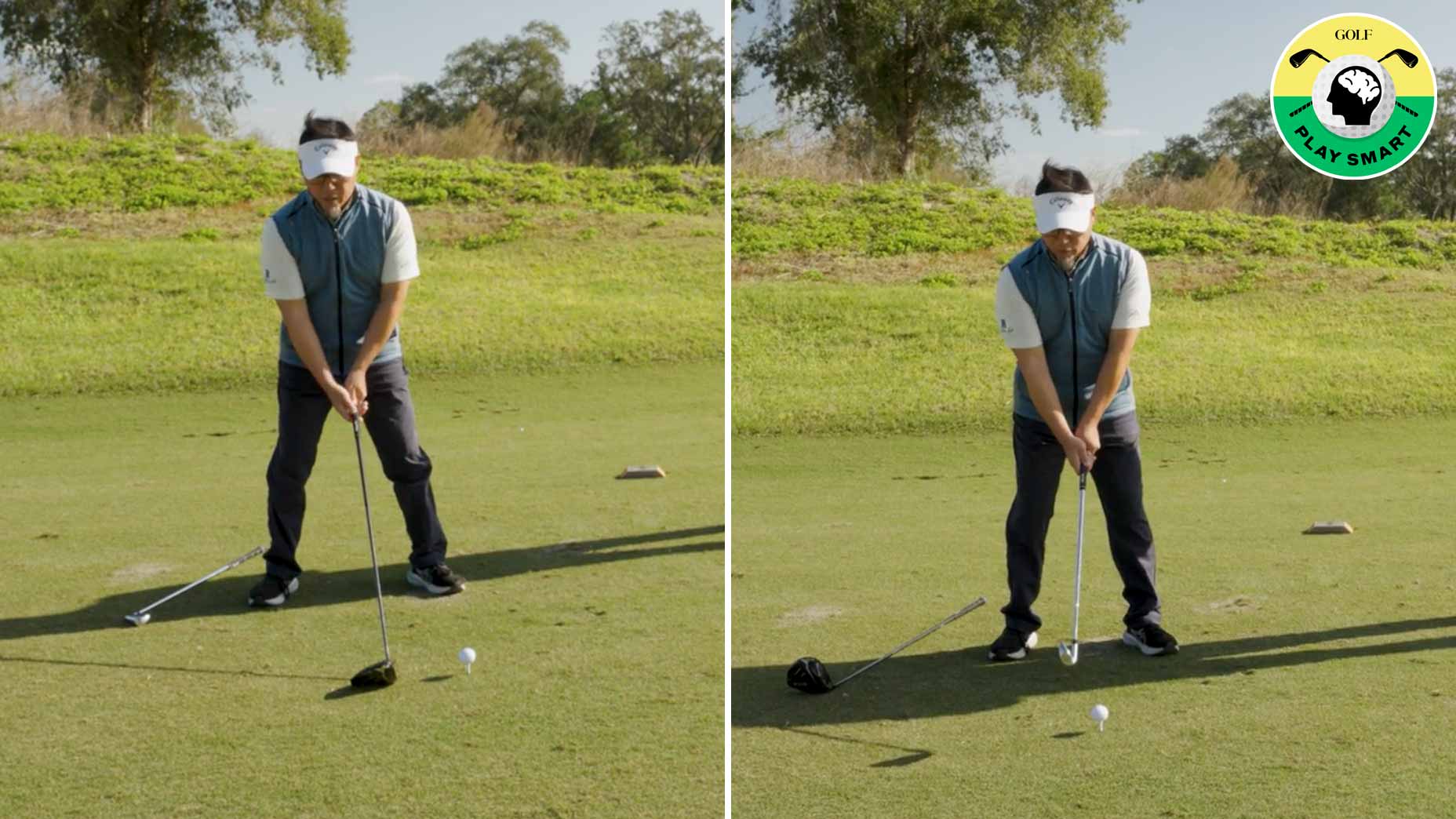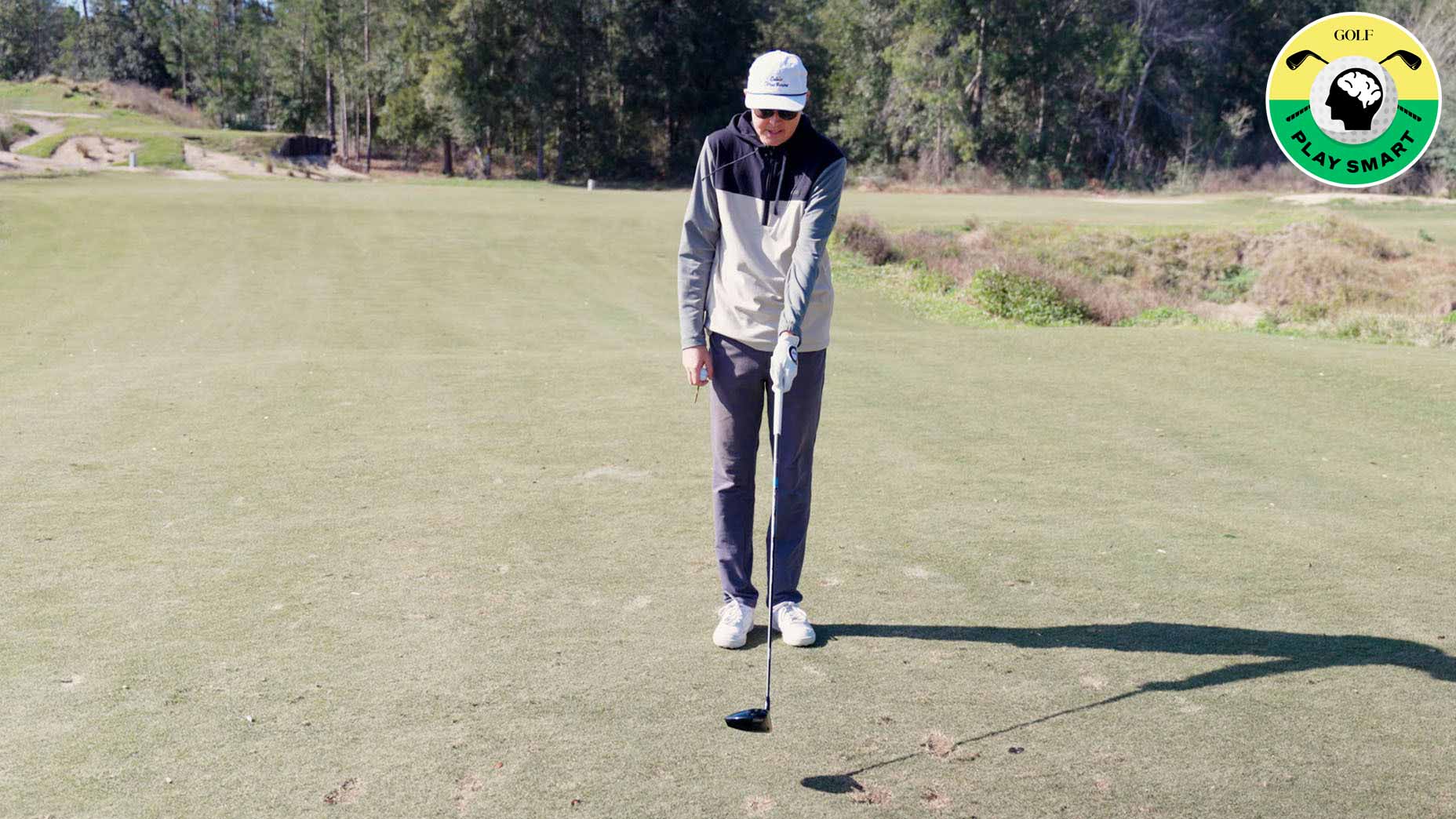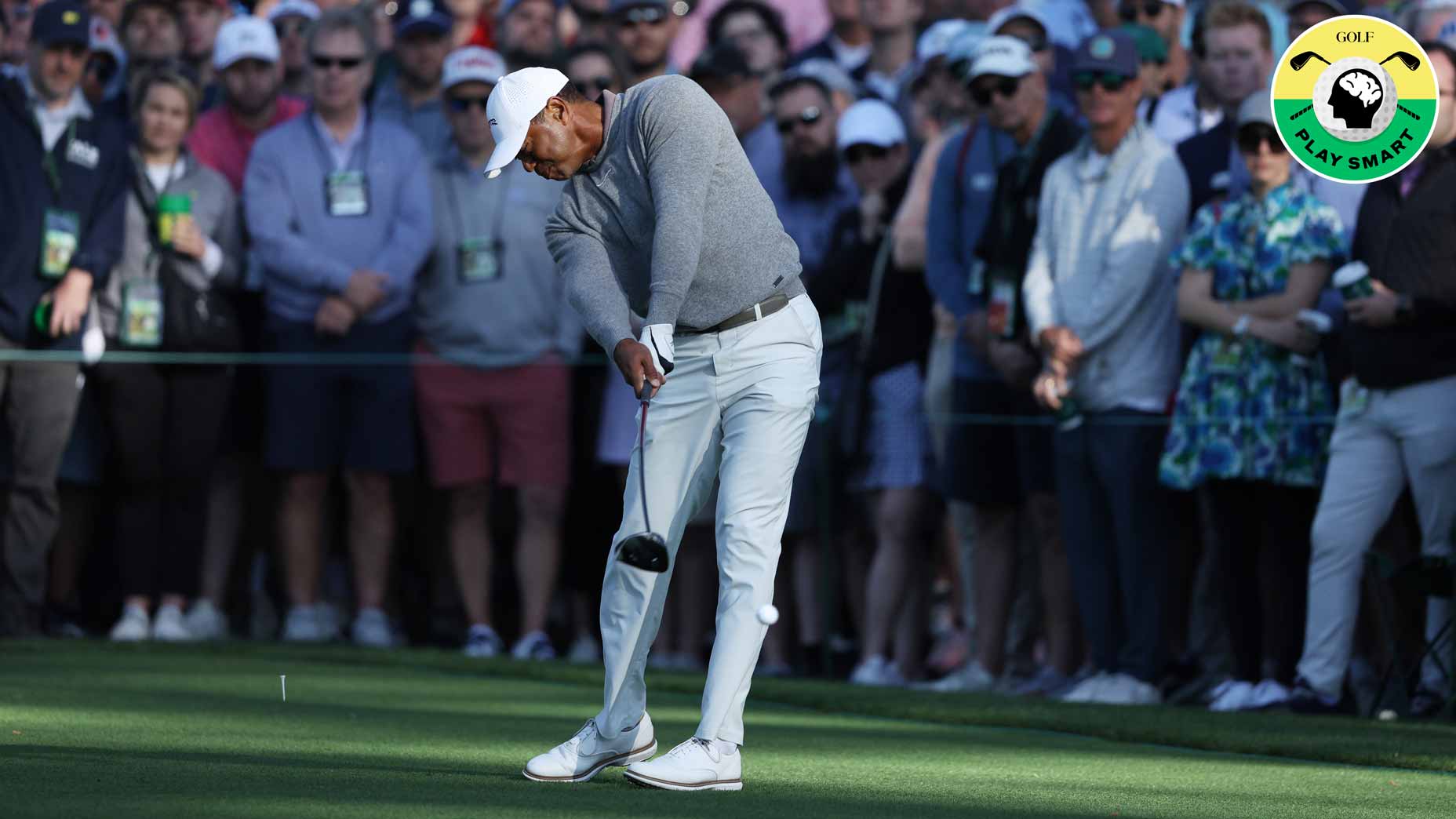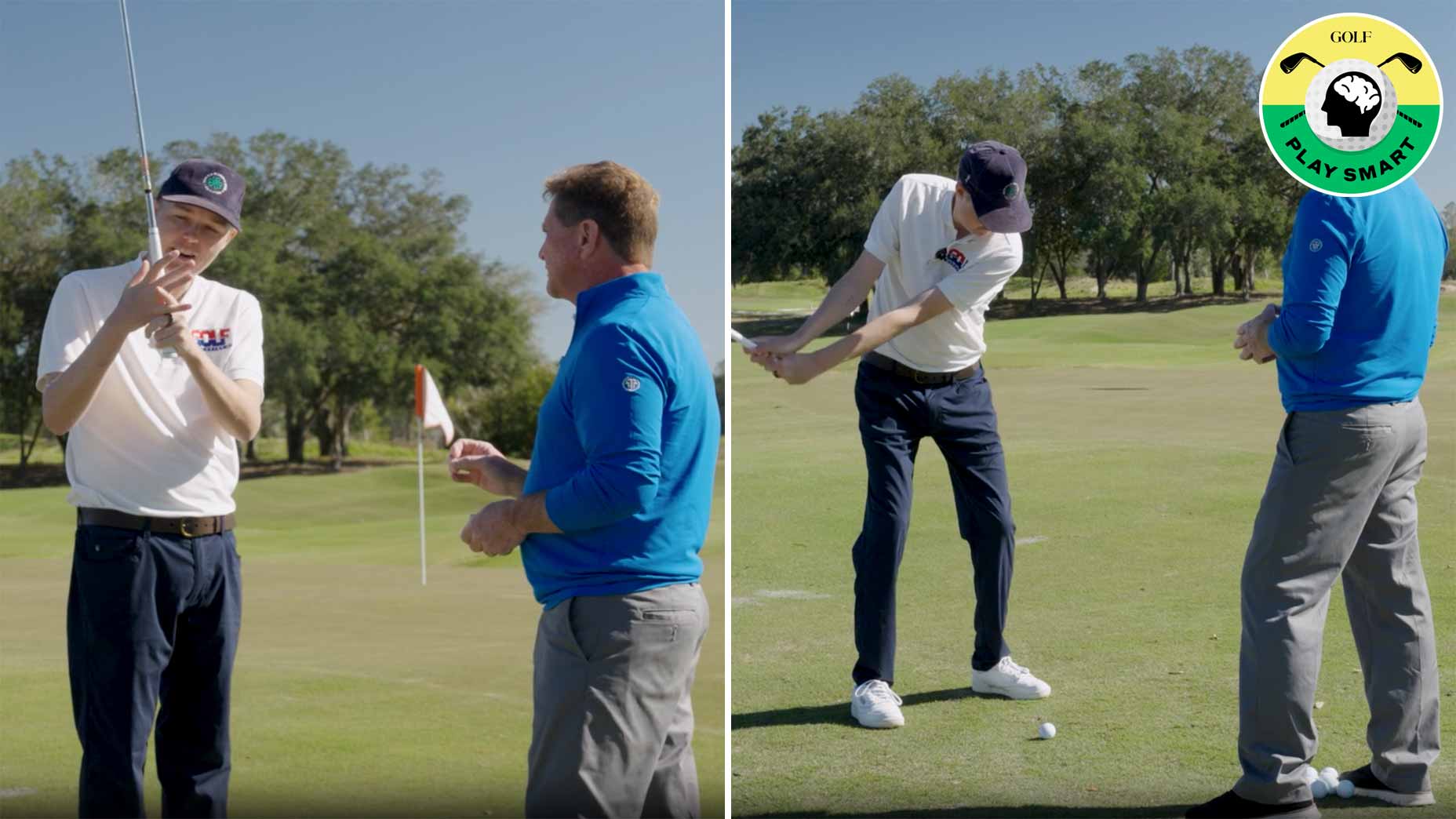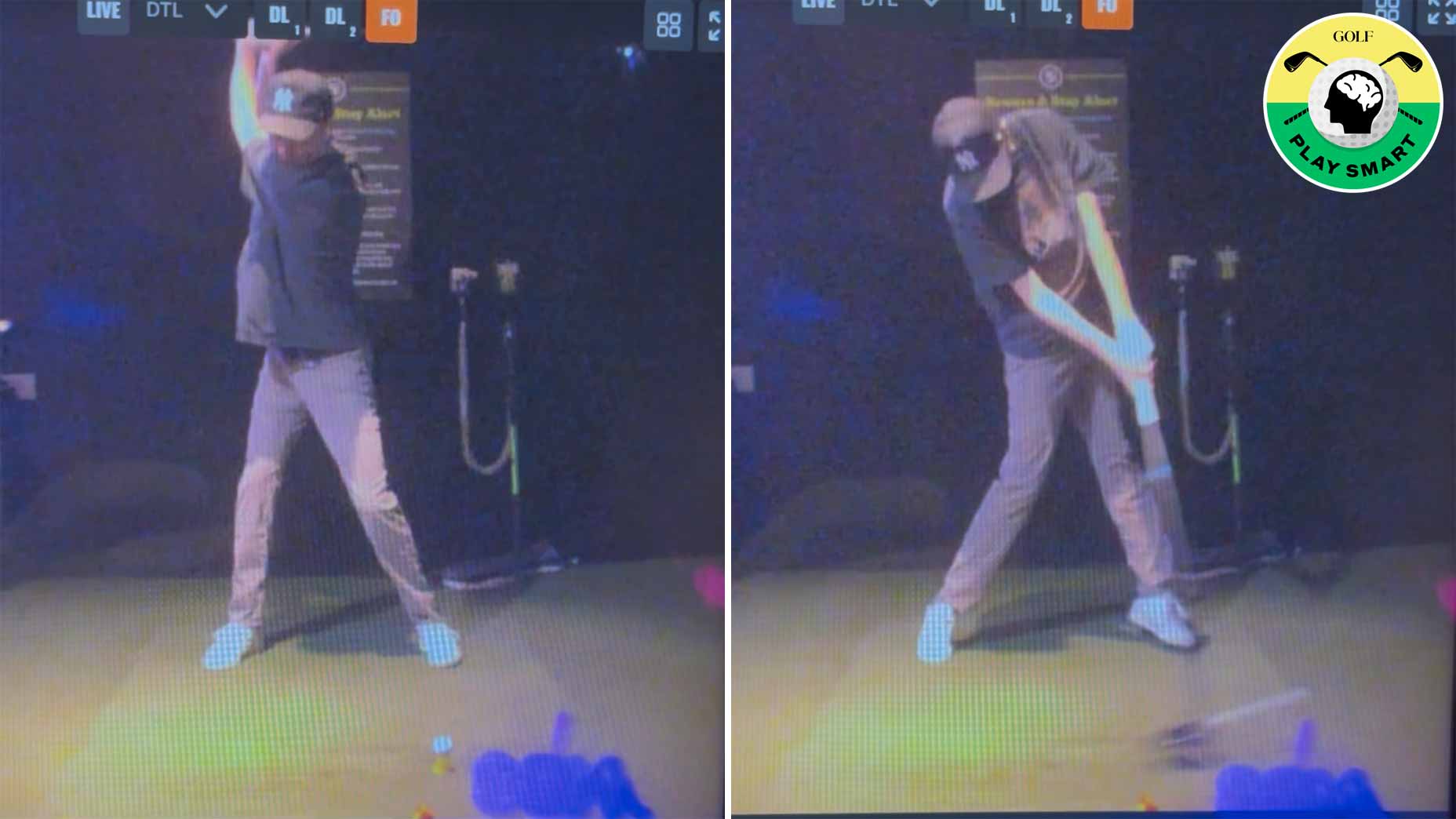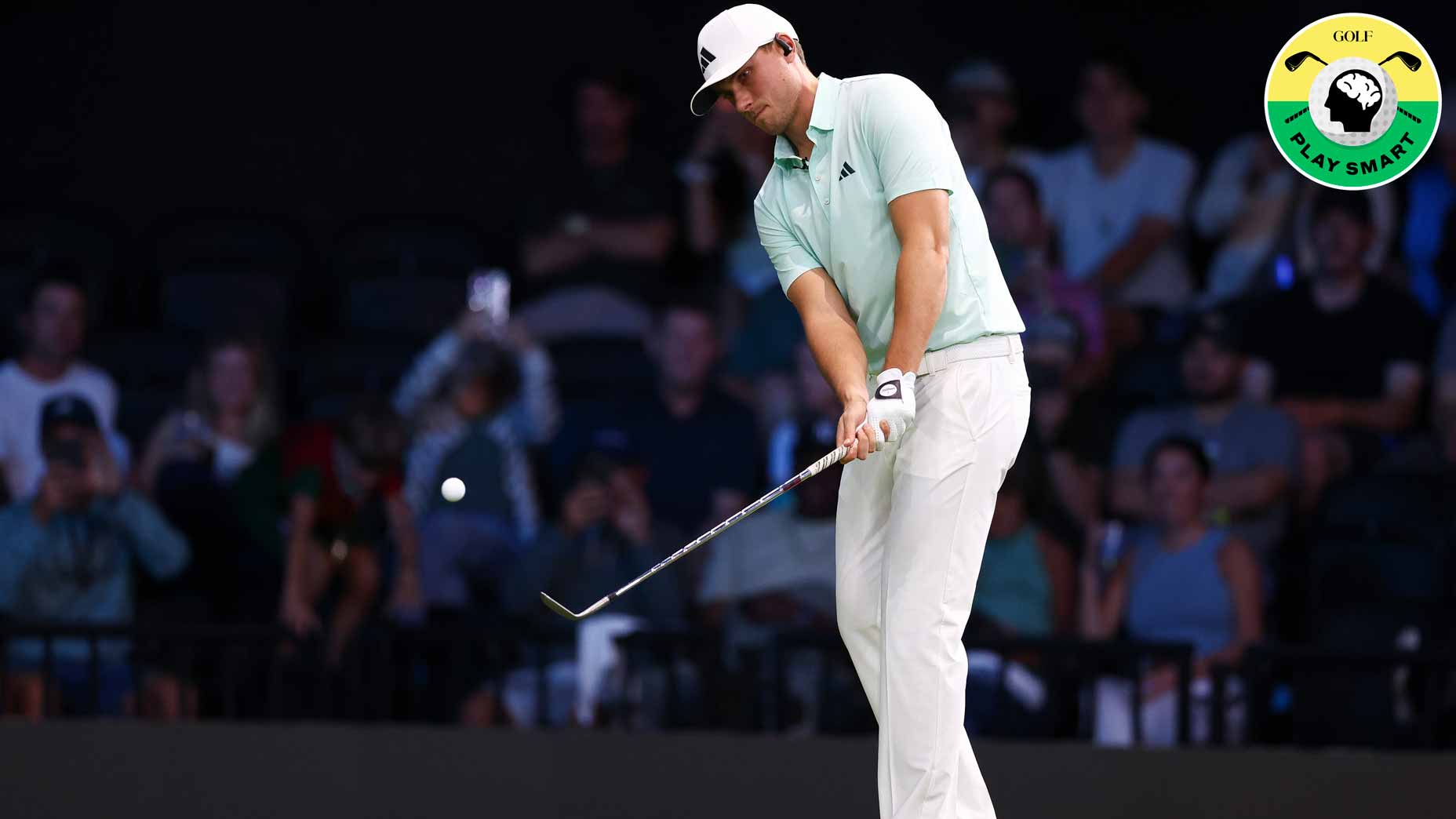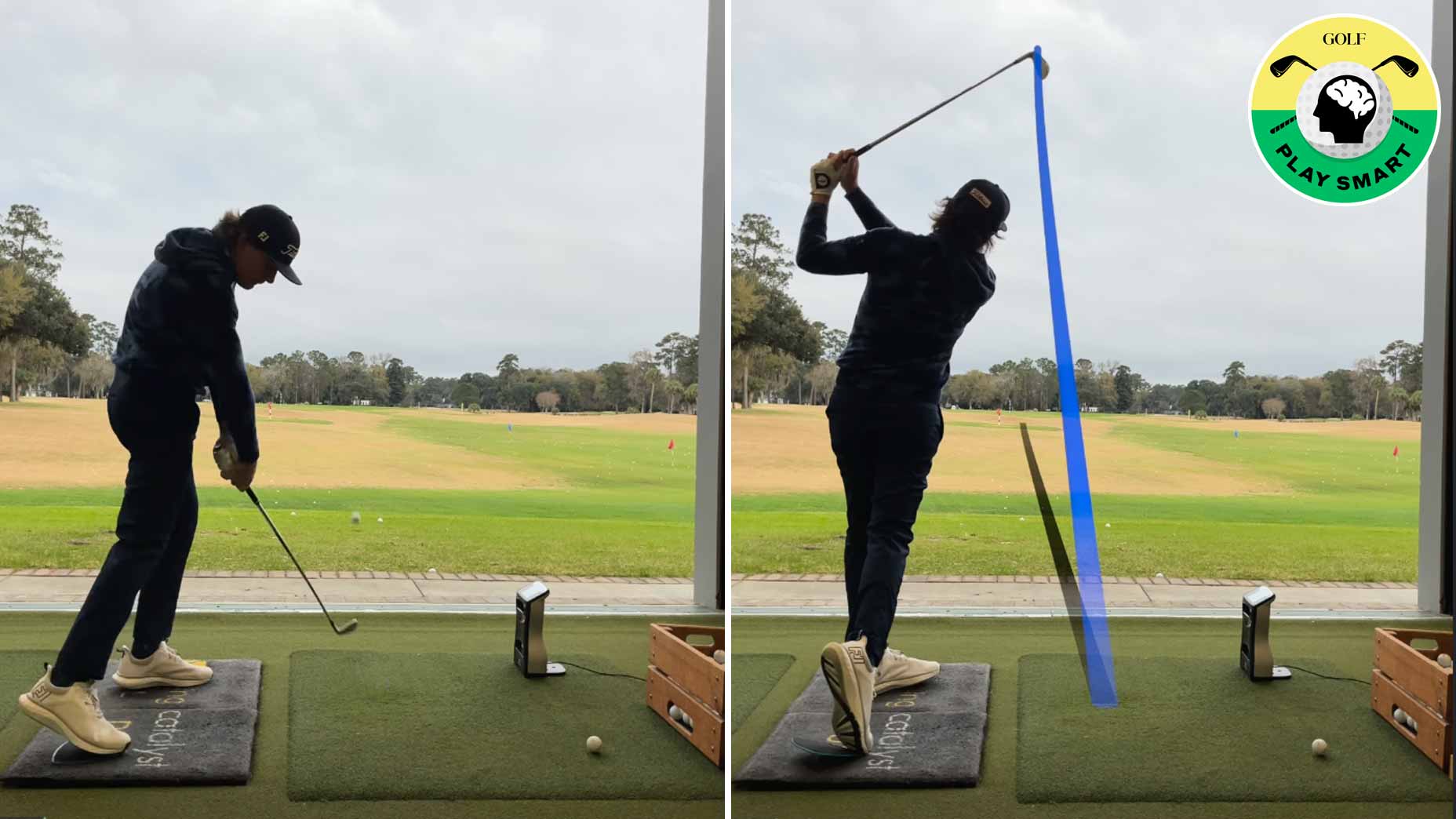Welcome to Play Smart, a game improvement column and podcast from editor Luke Kerr-Dineen to help you play smarter, better golf.
Ask golf fans whose tempo they would most like to have, you’ll start hearing one name pop up an awful lot: Corey Conners. The 30-year-old Canadian golfer is one of the best ball strikers on tour, and he says the key to it all is good rhythm.
“It’s always something that I’ve focused on as a kid,” Conners said. “My dad really helped engrain it into me: Have good tempo, and hit the ball in the middle of the clubface. Giving yourself a little extra time to collect things and then unwind will give you your best chance of hitting a good shot.”
Conners said he would practice on the range literally counting in his head during his backswing and downswing. He’d count one full second for his backswing, and then swing through, counting another full second.
“I hit so many shots that way,” Conners said.
As a junior, tempo took the priority over technique, he says, but he also found that one helped solve the other. The smoother Conner’s tempo got, the more his swing improved.
“When I play with amateurs, I think it’s something they notice in my swing, but it’s something I remind them of too,” he says. “Having good tempo helps get the club in a good spot at the top of the backswing. You see a lot of amateurs, when they hit a bad shot, they say they got quick. The club never gets a chance to set before they begin down.”
Now, thanks to PING’s ENSO system, we get to admire Conners’ tempo in an entirely new light.
I’ve written about the ENSO before, but in a nutshell: It’s a high-tech program designed by PING that measures advanced elements of players’ golf swings. It helps PING better understand how their technology is reacting, and it has improved their ability to fit it to players.
You can listen to a full 11-minute Play Smart episode below, and subscribe to the Play Smart podcast on Apple here, or on Spotify right here.
Conners’ tempo keys
Last week, the company shared some interesting nuggets about Corey Conners’ swing:
His backswing is almost exactly one second long. 0.937 to be exact.
The ratio of his backswing is 3.5 to 1, meaning his backswing is more than three times slower than his downswing.
The club almost comes to a complete stop at the top of the backswing. A more pronounced backswing pause, as biomechanist Sasho Mackenzie explains right here, is something that can really help some golfers.
These are all things we can attempt to emulate in our own swing. But Conners, for his part, says the best tempo is the one that feels natural to you. So experiment with different speeds, he says, and practice the one that feels comfortable.
“Good tempo doesn’t need to be slow necessarily” he says. “It can be quicker, but it has to be smooth.”
@coreconn's transition is SMOOTH. His ENSO numbers:
— PING GOLF (@PingTour) August 25, 2022
✔️ Backswing time: .937 seconds
✔️ Tempo: 3.58: 1 pic.twitter.com/ydABt2rKSP
Subscribe to the Play Smart podcast on Apple here, or on Spotify right here.



